
The Allied Educational Foundation (AEF) was formed in 1964 by George Barasch, a United States labor leader who led over 11,000 union members. After spending over two decades fighting for the rights of workers to organize and thrive, Barasch saw the need for an independent organization that would continue to advance the education and rights of working Americans outside the labor arena. Initial discussions between leaders of industry, labor, and government focused on the advisability of establishing a charitable and educational foundation to review periodically the rapidly changing society and its effect on the citizens who live within such a society – locally, nationally and internationally. Central to these discussions was a conviction that an ability to understand and adapt to change is the most important aspect of society today – change in the size and movement of our people; change within the urban communities and the megalopolis; change in the relation between city and state, state and nation; change between nations that are declining and new ones that are coming into being; change in the economic structure; change in power that has been produced by technological development and the control of the sources of energy. In particular, Barasch believed that for United States citizens to adapt and live successfully in the context of change they must (1) be educated on their rights and civic responsibilities as Americans, (2) have the ability to critically evaluate and obtain accurate information from the media, and (3) take ownership of their health to live long, active lives.
Overseas Comparative Economic, Industrial and Labor Studies Project
The Foundation began to take shape with funds contributed generously by the public, industry, labor and financial institutions, the aim and objective being not only to educate, but to participate in the direction of change. Beginning in 1964, AEF created the Overseas Comparative Economic, Industrial and Labor Studies Project (formerly, the “Workshop Project Abroad”) in cooperation with the School of International Relations of Georgetown University. This unique program centered on a dialogue between Americans from all segments of society including blue and white-collar workers, practitioners in medical, legal, art, and other professions, community and political leaders and their counterparts overseas. Selecting men and women from an ever increasing roster of participants, the Allied Educational Foundation became the medium through which hundreds of Americans and Europeans learned to know each other better and gain the kind of insights so essential for the development and maintenance of the democratic way of life. The initial class completed coursework at the London School of Economics and held ongoing discussions over several weeks with British Labor Party leaders such as Prime Minister Harold Wilson and Foreign Secretary George Browne.
Since the inaugural program, over the course of 40 years, program participants have visited, and on occasions revisited, the United Kingdom, France, Spain, Switzerland (and the International Labor Organization based in Geneva), Portugal, Italy, Austria, Israel, Morocco, Mexico, Bermuda, and the Scandinavian lands of Norway, Sweden and Denmark, Canary Islands and Madeira, Canada, as well as Romania and the former country of Yugoslavia. Destinations were based on recommendations from the U.S. Labor Department, International Division and the U.S. Department of State. All expenses, including travel and a per diem for hotel, food and other expenditures, were paid for by the Foundation. Project participants received an orientation from each Embassy at the beginning of a visit, which served as a frame of reference for further studies, along with the vast quantity of unclassified material made available to the group participants. The education attained by participants is something that they could never glean from books. Not only did they learn about the problems overseas from a practical standpoint, but they also contributed much to the understanding of America and of the American public in other countries.

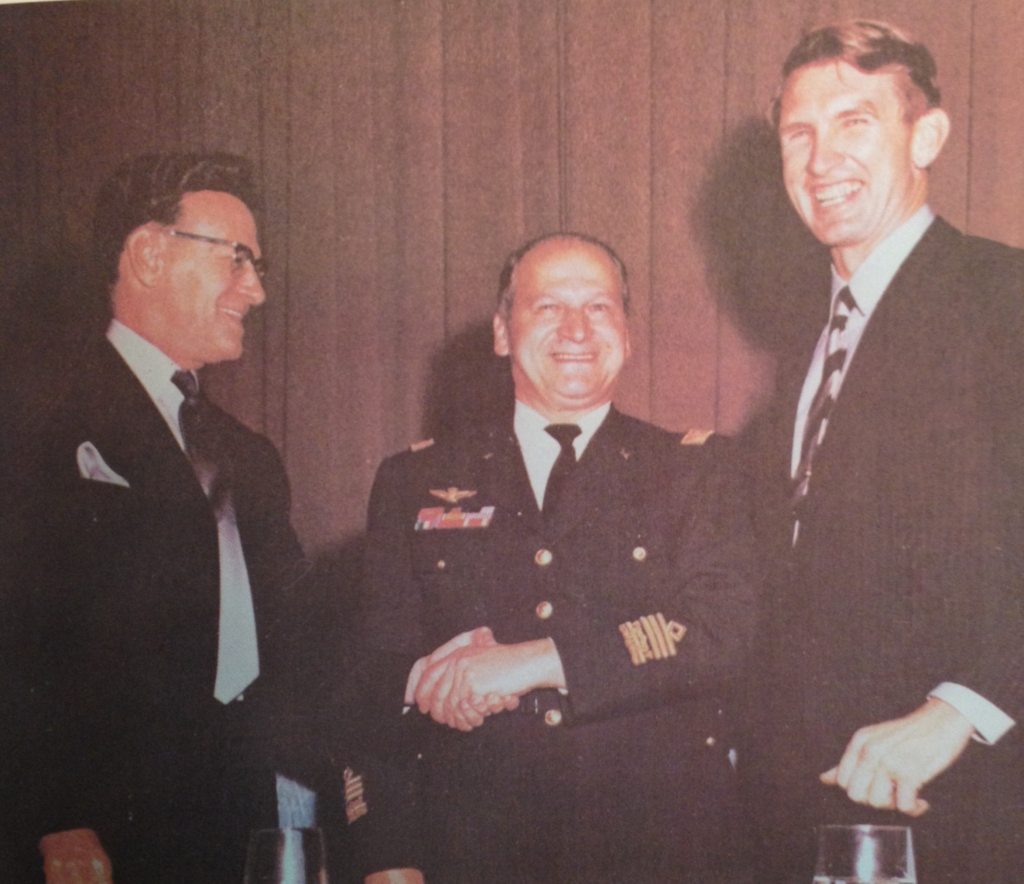
Foundation Conference Series
In 1966, AEF began a series of educational conferences to bring public officials such as U.S. Senators and justices together with private citizens to discuss current issues of the day. The purpose of these conferences was to evaluate problems as they arise in American society and to frame guidelines for future action. By 1969, AEF educational conferences had attracted civil rights advocates, leading politicians, legal scholars, academics, economists and prominent journalists including Senator William Proxmire, Martin Luther King, Jr., U.S. Supreme Court Justice William O. Douglas, President Gerald Ford, Vice President Walter F. Mondale, labor columnist Victor Riesel, Pulitzer Prize-winning journalist Harrison E. Salisbury, and economist Leo Cherne. The Foundation also began hosting Health and Welfare conferences in 1968 inviting leaders in the medical community to discuss a variety of health matters including diet, dermatology, sexual and urinary health, cardiac health, transplants and other medical procedures, and components of healthy lifestyles. The most recent Health and Welfare Conferences are held in Pennsylvania in the Fall.
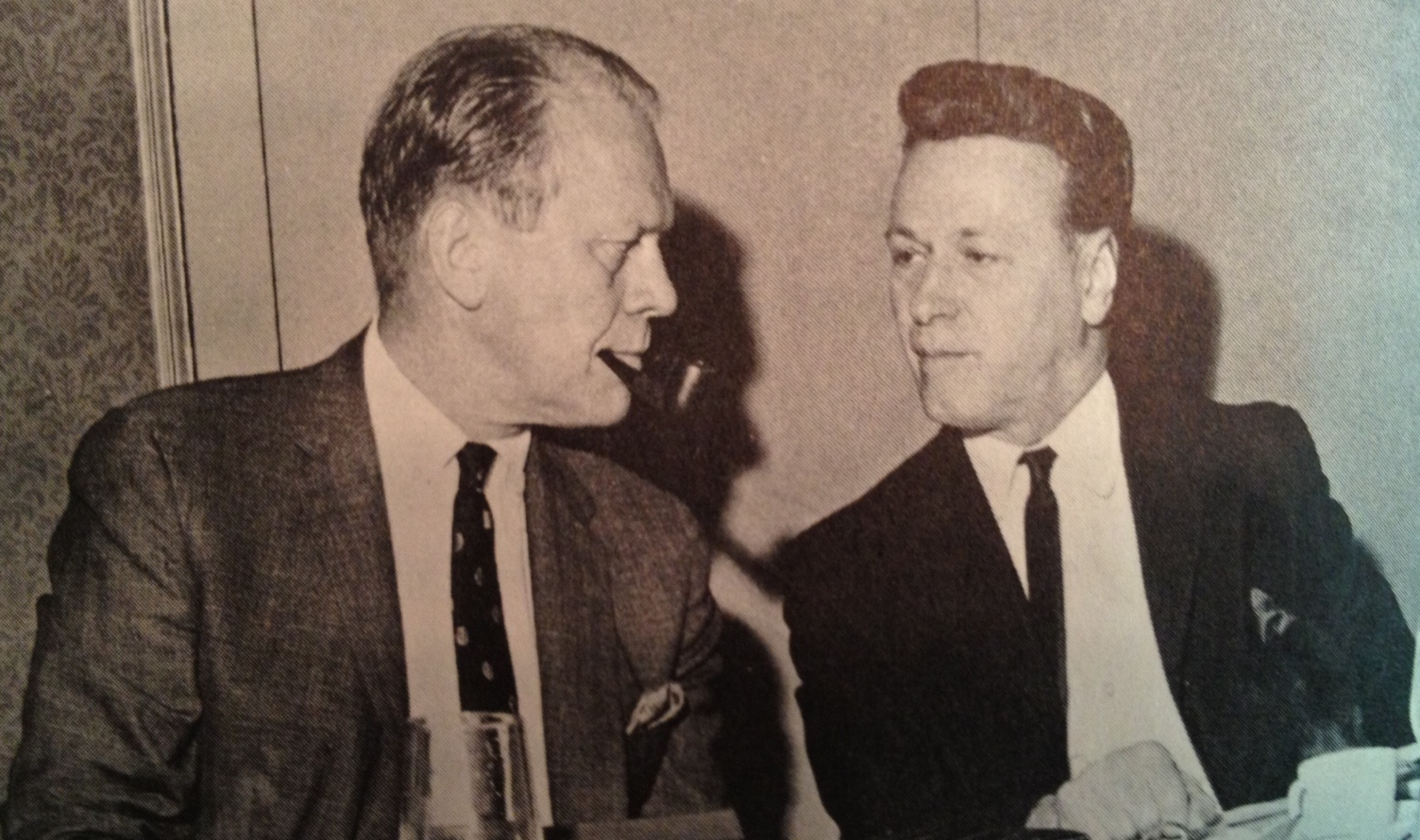
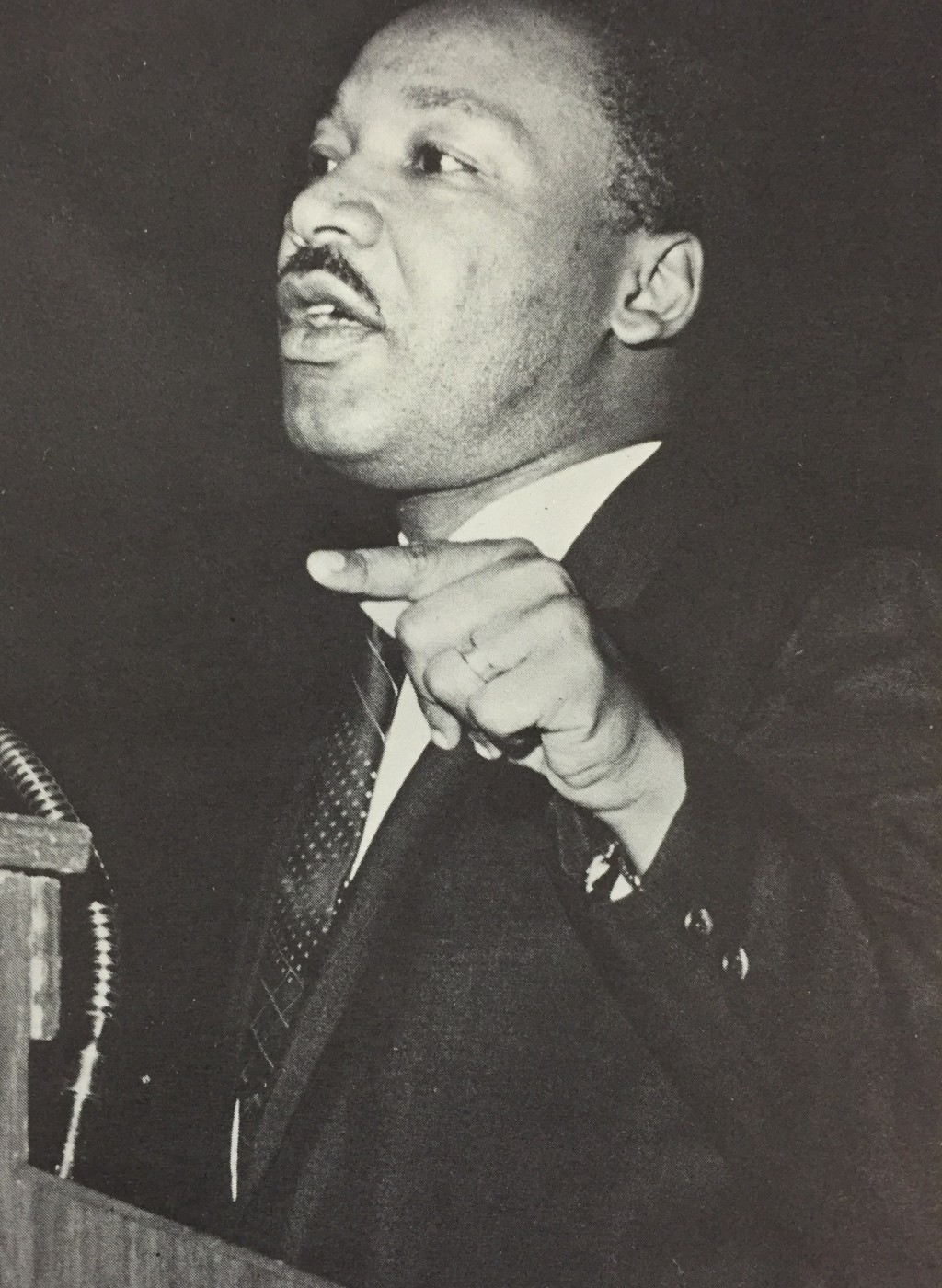
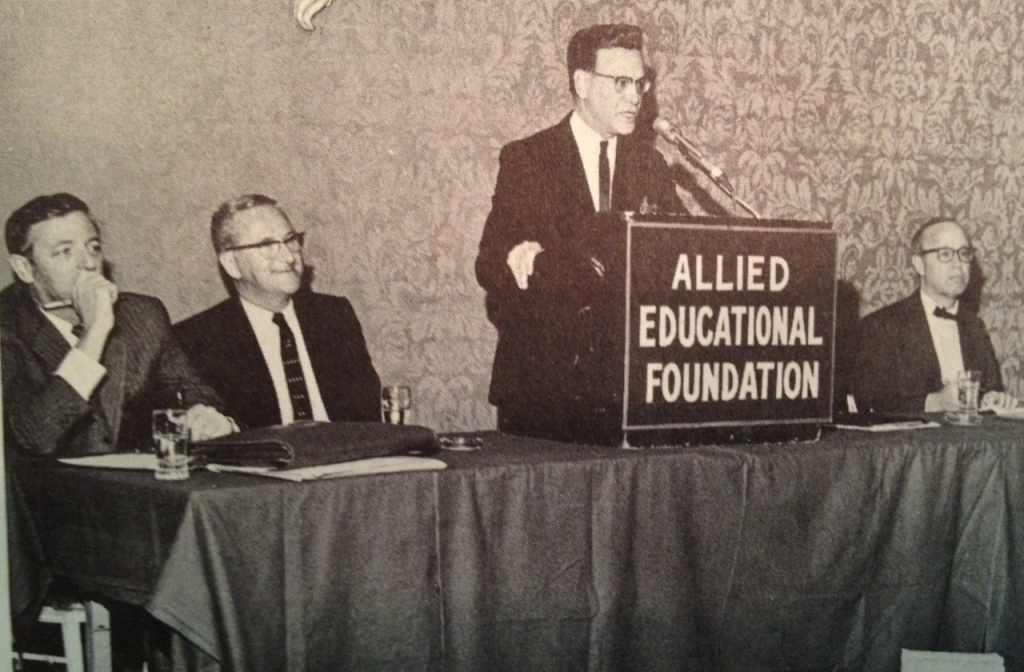
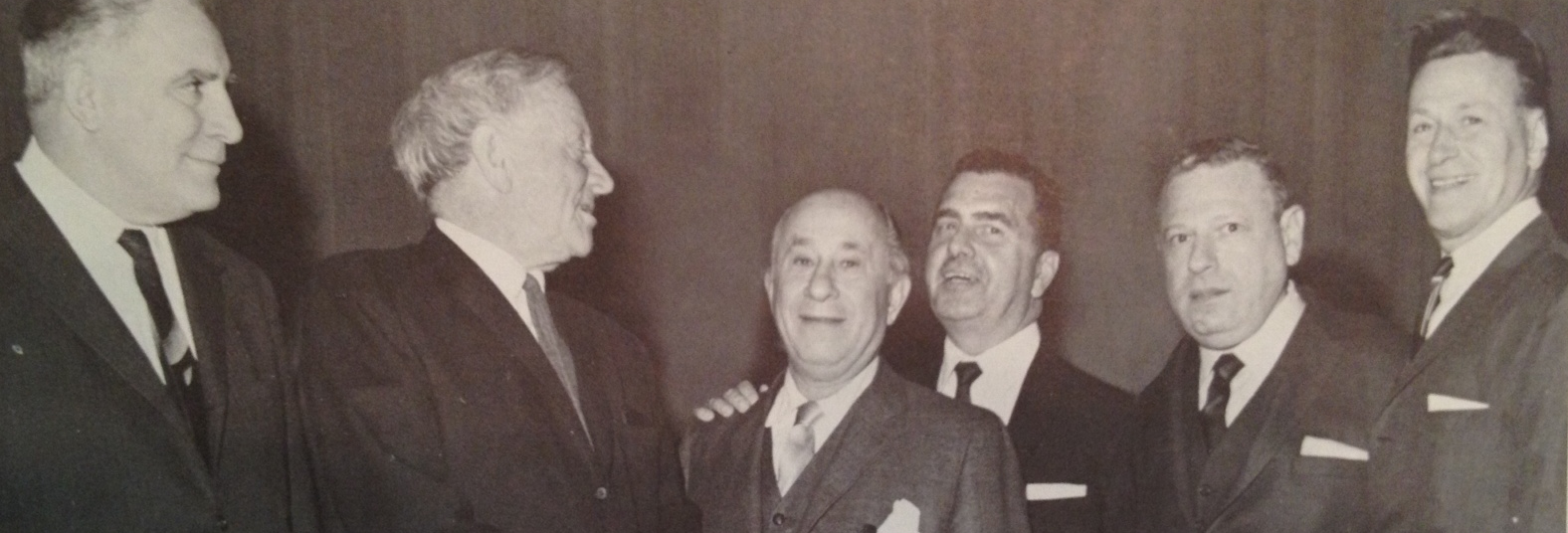
Education Outreach
Answering the call of students who desired to pursue higher education but lacked the resources, the Foundation began a yearly scholarship program in 1966 unparalleled at the time in the United States. That year, AEF awarded sixteen $1,000 scholarships to high school graduates and college students (a total amount worth over $400,000 in today’s dollars). The numbers of scholarships almost doubled to 29 by 1969. Scholarships were given annually until 2005 when they were transferred to the Union Mutual Foundation.
Intent on further broadening the educational reach of the Foundation, George Barasch also envisioned a team of Foundation ambassadors who would go out into the community to educate the public at every level on issues essential to being an empowered citizen…imparting a knowledge of civics, critically evaluating the media, national security, and domestic and foreign policy. This dream would be realized in 1983 when the Speaker’s Bureau was born. In partnership with Accuracy in Media, Foundation speakers traveled around the country… to high schools, colleges, rotary clubs and other organizations presenting on a variety of topics integral to being an empowered citizen. The first year over 392 educational lectures were given around the country. Since 2004, over 1,600 educational sessions have been provided free of charge to students and interested groups to audiences such as the University of California Berkeley and the United States Military Academy (West Point).
Legal Advocacy
Early in the conception of the Foundation, George Barasch realized that education of the public with regard to their rights, duties and freedoms as American citizens would not be complete without equally purposeful action to protect those same freedoms consistent with the Constitution. Beginning in 1988, AEF began a campaign to identify legal cases in local, state, and federal courts whose decision could significantly impact the course of American liberties. Along with legal partners, AEF has submitted over 200 documents and briefs educating the courts and relevant parties, and has won a majority of the cases argued, ensuring the protection of individual liberties in each of these cases.
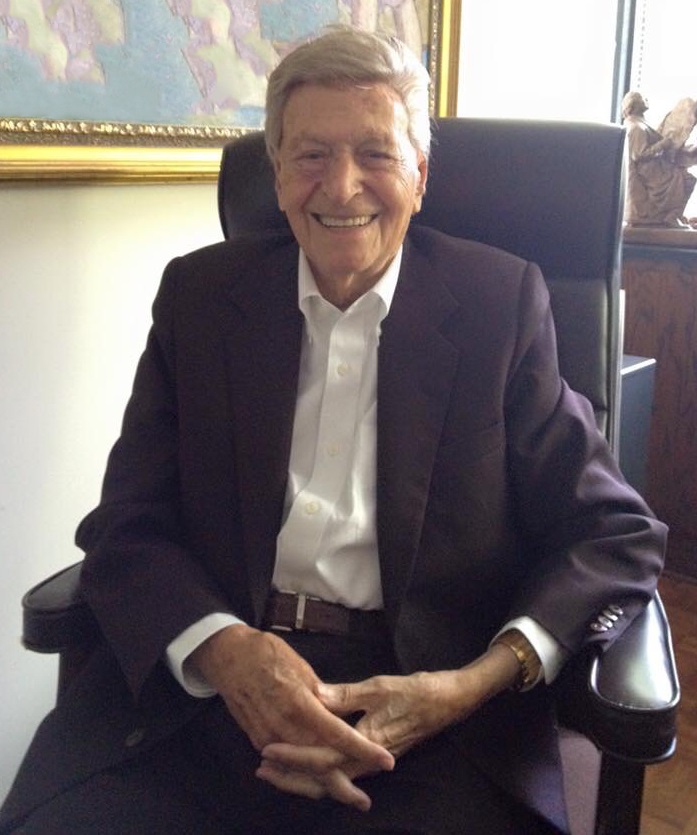
George Barasch remained Chairman of the Allied Educational Foundation for 49 years until his death at 102 years of age in 2013. Stephen Barasch took on the position of Chairman and currently serves in this role.
